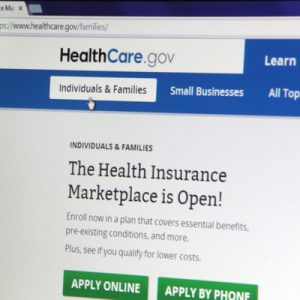 In “State of confusion: Michigan’s mental health system has many layers for those in need to navigate,” Chad Livengood of Crain’s Detroit describes Michigan’s complex and daunting mental health system. Livengood notes that the system is facing financial hardships due to its complexity, as well as the huge financial hit caused by the COVID-19 pandemic itself.
In “State of confusion: Michigan’s mental health system has many layers for those in need to navigate,” Chad Livengood of Crain’s Detroit describes Michigan’s complex and daunting mental health system. Livengood notes that the system is facing financial hardships due to its complexity, as well as the huge financial hit caused by the COVID-19 pandemic itself.
COVID-19 has delayed state plans to improve the mental health system and provide more resources for those with severe mental health issues (SMI). Individuals with SMI often find themselves lost in the medical system, or the ER, instead of getting adequate mental health treatment from the proper organizations.
Livengood writes that when mental health facilities do receive funding from the Michigan Department of Health and Human Services, those funds tend to come with a long list of requirements that cost money to implement.
Certified Community Behavioral Health Clinics (CCBHC) are designed to address this issue by integrating primary care with mental health treatment. Experts hope that integrated health networks like these will dramatically improve the state’s mental health system.
Livengood cites the Center for Health Research and Transformation’s recent brief on CCBHCs, which notes that there are 18 CCBHCs across the state, and none in the northern Lower Peninsula and Upper Peninsula.


 In a Bloomberg News article,
In a Bloomberg News article, 
 From February 2020 to May 2020, there was a 46 percent increase in uninsured Michiganders due to residents losing their jobs during the early days of the pandemic. This means about 834,000 Michiganders newly found themselves without insurance. Via executive order, President Biden enabled the federal government to reopen the ACA Health Insurance Marketplace for a special enrollment period from February 15th-May 15th “for those who didn’t sign up for healthcare during the fall open enrollment period, or lost their private insurance during the pandemic.”
From February 2020 to May 2020, there was a 46 percent increase in uninsured Michiganders due to residents losing their jobs during the early days of the pandemic. This means about 834,000 Michiganders newly found themselves without insurance. Via executive order, President Biden enabled the federal government to reopen the ACA Health Insurance Marketplace for a special enrollment period from February 15th-May 15th “for those who didn’t sign up for healthcare during the fall open enrollment period, or lost their private insurance during the pandemic.”




 In a Detroit Free Press article,
In a Detroit Free Press article, 



 Insurance premiums have dropped in Wexford, Missaukee, Lake, and Osceola counties write Karen Hopper Usher for the
Insurance premiums have dropped in Wexford, Missaukee, Lake, and Osceola counties write Karen Hopper Usher for the 
 In a December Morning Sun
In a December Morning Sun